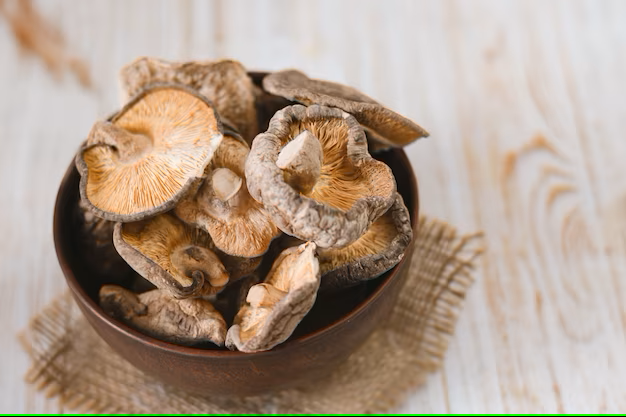In an era where health and well-being are at the forefront of our concerns, the concept of an anti-inflammatory diet has gained significant attention. More than just a trend, this dietary approach has emerged as a cornerstone of long-term health. In this article, we’ll delve into the science behind inflammation, explore the benefits of an anti-inflammatory diet, provide a comprehensive list of anti-inflammatory foods, and offer practical tips for incorporating this approach into your daily life. Additionally, we’ll share external resources and answer frequently asked questions to help you unlock the potential of an anti-inflammatory diet for a healthier, happier life.
Understanding the Role of Inflammation
Inflammation is a natural and vital process in the body’s defense mechanism. It’s the body’s response to injuries and infections, promoting healing and recovery. However, when inflammation becomes chronic, it can lead to various health issues, including cardiovascular disease, diabetes, and certain cancers. This chronic, low-level inflammation is often associated with lifestyle factors, particularly diet.
The foods we eat can either fuel inflammation or help calm it. An anti-inflammatory diet focuses on the latter, with the ultimate goal of reducing chronic inflammation to support overall health.
Monounsaturated Fat vs. Polyunsaturated Fat: Exploring the Differences
The Benefits of an Anti-Inflammatory Diet
Embracing an anti-inflammatory diet offers a wide range of benefits:
- Reduced Chronic Inflammation: By choosing anti-inflammatory foods, you can mitigate the inflammatory response, potentially lowering the risk of inflammation-related diseases.
- Heart Health: An anti-inflammatory diet is associated with improved cardiovascular health, including lower blood pressure, reduced cholesterol levels, and a decreased risk of heart disease.
- Weight Management: It can aid in weight loss and maintenance, as it encourages the consumption of nutrient-dense, low-calorie foods.
- Better Blood Sugar Control: An anti-inflammatory diet can help regulate blood sugar levels, making it particularly beneficial for individuals with diabetes or those at risk of developing the condition.
- Gut Health: The foods emphasized in an anti-inflammatory diet can promote a healthier gut microbiome, which is essential for digestion and overall well-being.
- Cancer Prevention: Some anti-inflammatory foods are believed to have cancer-fighting properties, potentially reducing the risk of certain types of cancer.
Iron-Rich Foods for Anemia: A Guide to Managing and Preventing Iron-Deficiency Anemia
Anti-Inflammatory Foods to Include
The following list of anti-inflammatory foods can be your allies in the journey toward better health:
1. Fatty Fish
Salmon, mackerel, and sardines are rich in omega-3 fatty acids, known for their potent anti-inflammatory effects.
2. Berries
Blueberries, strawberries, and raspberries are packed with antioxidants that combat inflammation.
3. Leafy Greens
Kale, spinach, and Swiss chard are excellent sources of vitamins, minerals, and antioxidants that promote a healthy anti-inflammatory response.
4. Nuts
Almonds, walnuts, and other nuts provide healthy fats and anti-inflammatory compounds.
5. Olive Oil
Extra virgin olive oil is a staple of the Mediterranean diet and is known for its anti-inflammatory properties.
6. Turmeric and Ginger
These spices contain powerful anti-inflammatory compounds that can be added to various dishes.
7. Whole Grains
Whole grains like brown rice, quinoa, and oats are rich in fiber and nutrients that support a healthy response to inflammation.
8. Beans
Beans, lentils, and chickpeas offer protein, fiber, and essential nutrients to keep inflammation in check.
9. Spices
Cinnamon and cloves, among others, have anti-inflammatory properties and can add flavor to your meals.
10. Green Tea
Green tea contains antioxidants called catechins, which have anti-inflammatory effects.
Practical Tips for an Anti-Inflammatory Diet
Incorporating an anti-inflammatory diet into your daily life doesn’t have to be challenging. Here are some practical tips to get started:
- Prioritize Whole Foods: Focus on whole, unprocessed foods and minimize the intake of processed and fast foods.
- Embrace Healthy Fats: Choose sources of healthy fats like avocados, nuts, and olive oil over trans fats and saturated fats.
- Colorful Plates: Aim to make your meals colorful by incorporating a variety of fruits and vegetables.
- Mindful Cooking: Use cooking methods like steaming, sautéing, and baking to retain the nutritional value of your ingredients.
- Spice It Up: Experiment with anti-inflammatory spices like turmeric, ginger, and garlic to add flavor to your dishes.
- Limit Sugar and Refined Carbs: Reduce your consumption of sugary snacks and drinks, as well as refined carbohydrates like white bread and pastries.
- Stay Hydrated: Drink plenty of water and herbal teas to stay properly hydrated.
- Consult a Healthcare Professional: If you have specific health concerns or dietary restrictions, consult a registered dietitian or healthcare provider for personalized guidance.
External Resources
To deepen your understanding of the anti-inflammatory diet and its impact on health, consider exploring the following external resources:
- Harvard Health Publishing – Foods that fight inflammation
- Arthritis Foundation – The Ultimate Arthritis Diet
Frequently Asked Questions (FAQs)
Q1: Can an anti-inflammatory diet help with arthritis and joint pain?
Yes, an anti-inflammatory diet may help reduce inflammation associated with arthritis and joint pain. Many individuals with arthritis find relief from their symptoms by adopting this dietary approach.
Q2: Are there any foods that should be avoided in an anti-inflammatory diet?
Foods to limit or avoid in an anti-inflammatory diet include processed and fast foods, sugary snacks and drinks, and foods high in trans fats and saturated fats.
Q3: How long does it take to see the benefits of an anti-inflammatory diet?
The time it takes to experience the benefits of an anti-inflammatory diet varies from person to person. Some individuals may notice improvements in a few weeks, while others may take longer. Consistency and a well-rounded diet are key.
Q4: Can an anti-inflammatory diet help with allergies and asthma?
An anti-inflammatory diet may help alleviate symptoms of allergies and asthma, as it can reduce overall inflammation in the body. However, it is not a replacement for medical treatment or prescribed medications.
Q5: Can children follow an anti-inflammatory diet?
Yes, children can benefit from an anti-inflammatory diet. It can support their overall health and well-being by providing essential nutrients and minimizing inflammation.
In Conclusion
The power of an anti-inflammatory diet cannot be understated. It has the potential to reduce chronic inflammation, lower the risk of inflammation-related diseases, and promote overall health. By making conscious food choices, embracing a variety of anti-inflammatory foods, and following practical tips, you can embark on a journey toward a healthier and more vibrant life. If you have specific health concerns or dietary needs, consider consulting a healthcare professional or a registered dietitian for personalized guidance on adopting and maintaining an anti-inflammatory diet.











